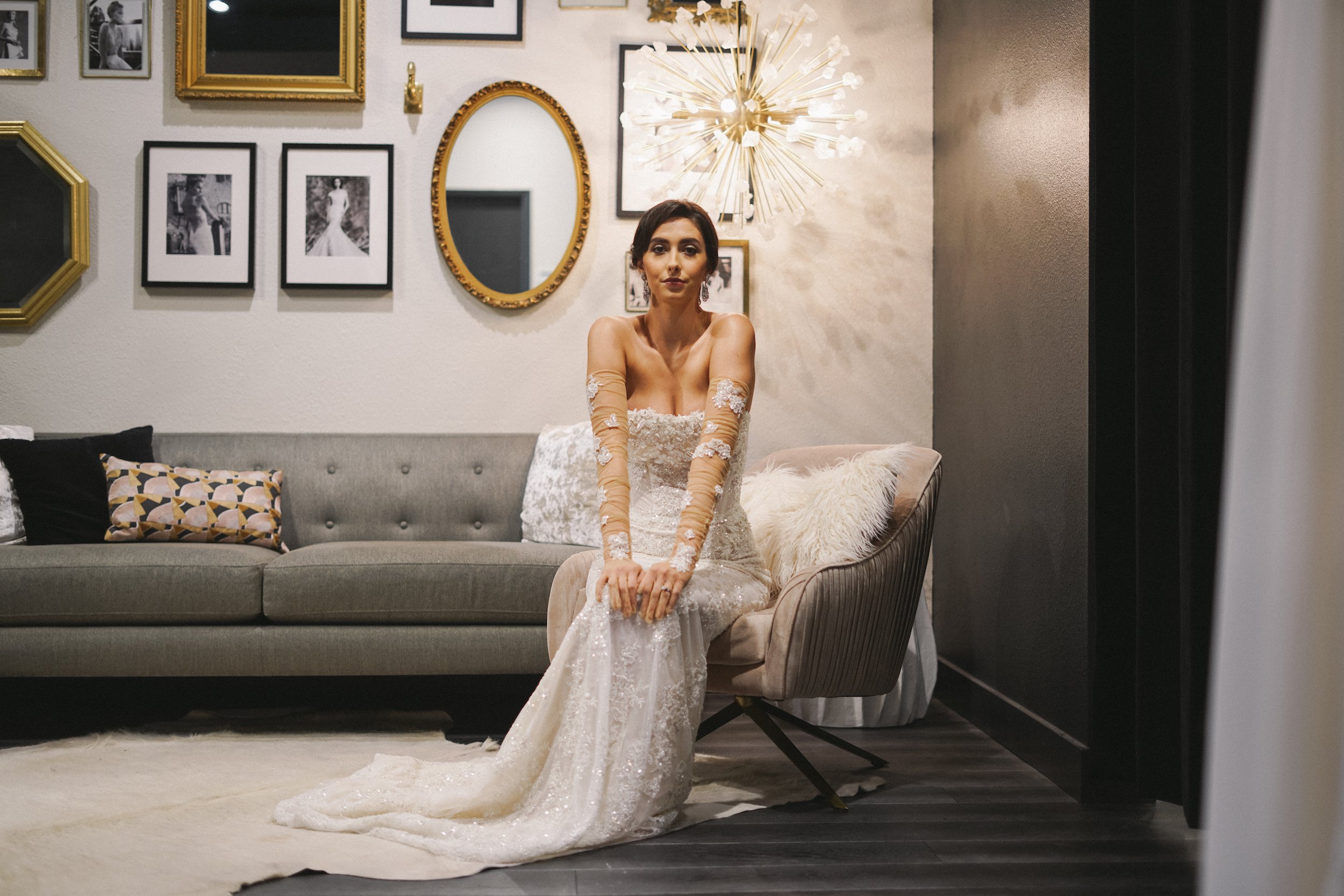When Should You Start Shopping?
The wedding planning process is full of timelines and knowing when to shop for your dress is one of the most important ones. But figuring out that perfect time to start can feel a bit tricky. Shop too late, and you might face rush fees or limited options. Shop too early, and you could overthink things—or fall in love with a style that’s no longer available when you’re ready to buy.
So, when’s the sweet spot?
Bridal gowns are made to order, which means each designer—and sometimes even each dress—will have a unique production timeline. Most gowns take about four to six months to produce and ship, with additional time needed for alterations. That’s why we generally recommend starting the shopping process around 12 months before your wedding date and aiming to have your dress ordered 8 to 9 months prior. This timeline not only ensures enough time for production and alterations, but it also gives you the freedom to explore your options without feeling rushed or pressured. You’ll have the opportunity to look around, try on different styles, and make a thoughtful decision, all while having a clear deadline to keep you motivated and on track.
That being said, every bride is different. Some may not be ready to shop until 9 months before their big day, while others prefer to start 14 months out. The key is to start when you feel ready to find the dress—a time when you’re serious about making a decision, and confident about the direction of your wedding plans.
What to Know Before You Start Shopping
When you’re do begin shopping, there are a few things to sorted beforehand to make the process smoother:
Your Wedding Date (or Timeframe)
It’s hard to plan your dress shopping without a general timeline. Even if you don’t have the exact date finalized, knowing the month (or season) of your wedding is essential. Production schedules and availability depend on this, so you’ll want to have at least a rough timeframe in mind before you start shopping.Your Venue
Your venue can help guide your dress decision—but it shouldn’t dictate it. For example, if you’re getting married on a Hawaiian beach, a heavy satin ball gown might not feel quite right, whereas a January wedding in Whistler might call for a dress with more substance—or even a chic winter accessory like a shawl or cape. That said, the most important thing is choosing a gown you love and feel amazing in, no matter the venue.Your Budget
We know—talking budget isn’t always fun, but it’s so important. Your wedding dress is both an emotional and financial investment, so having a clear idea of what you can afford (or are willing to spend) will make the shopping process so much easier.Your Preferences (Optional but Helpful)
While you don’t need to know exactly what you want, having a general sense of your likes and dislikes can be a great starting point. For example, maybe you know you don’t love plunging necklines, or you’ve always pictured yourself in a full, voluminous skirt. These preferences don’t have to lock you in, but they’ll help you focus as you try on dresses.
The Bottom Line
Dress shopping is one of the most exciting parts of planning your wedding, but timing is everything. Having a clear timeline and plan in place will help you make the most of it. Start when you’re ready, take your time to explore, and trust the process—you’ll know the right dress when you find it.
Xoxo,
Ashley

